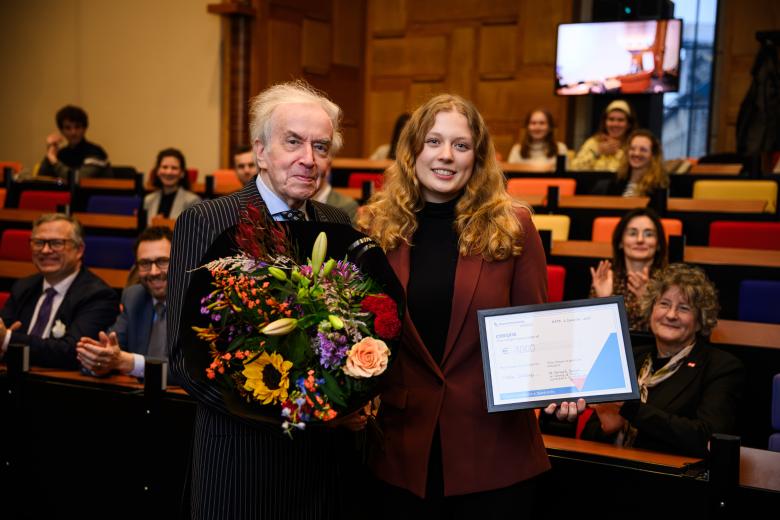Jordi Heijman nominated for the New Scientist Science Talent 2016
Jordi Heijman (FHML) is one of the twenty-five nominees for the New Scientist 2016 Science Talent (Wetenschapstalent) award. Heijman studies the mechanisms that cause cardiac arrhythmias. This knowledge can be used to more quickly determine which people have an increased risk for cardiac arrhythmias and can help researchers develop better treatment methods.
In his research, Heijman uses so-called 'patch clamp' experiments to measure the electrical properties of heart muscle cells. He is also developing computer models that can analyse these data. This leads to the creation of 'virtual heart cells', which can foster our understanding of complex interactions and help us make accurate predictions about the effects of certain medications, for example.
Eighteen universities in Belgium and the Netherlands nominated young and talented candidates in recent months. New Scientist selected twenty-five candidates based on these nominees. The winner of Science Talent 2016 will be determined by an online public vote and a jury vote and will receive a cash prize of 2,500 euros.
The winner will be announced on 22 September 2016. During the ceremony, the five highest-scoring nominees will present their research. Iris Sommer, Erik Scherder and Alexander Sack will also discuss the latest developments in the field of brain research.
The New Scientist Science Talent award was established last year to give young researchers the opportunity to present their research to a broad audience.
Also read
-
The University Fund Limburg's new Annual Fund Campaign is live!
Every year during the holiday season, the UM community comes together to uphold a special tradition: supporting projects that contribute to a healthier, fairer and more sustainable society. Will you join us?
-
Maastricht Consulates Prize on EU Law 2025 Awarded
On 2 December, the Maastricht Consulates Prize on EU Law 2025 was awarded at the Faculty of Law of Maastricht University to Merle Sandhop.
-
Sterke impuls voor revalidatiezorg: Revant treedt toe tot Academische Werkplaats Revalidatie
Revant treedt per 27 november 2025 toe tot de AWR, waarmee de positie van de AWR als innovatieve speler in de revalidatiezorg verder wordt versterkt. Hierdoor breidt de samenwerking zich uit van Limburg naar West-Brabant en Zeeland.